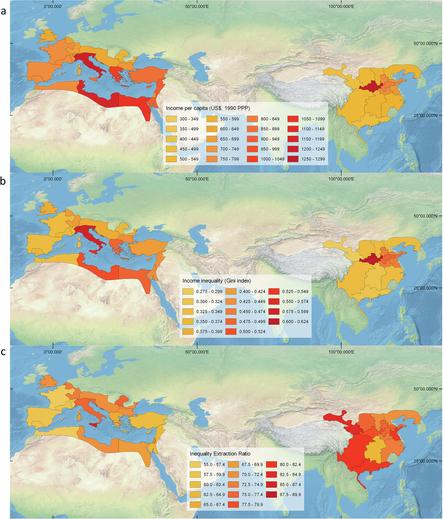The Roman Way to Trash a Republic - The Atlantic
https://www.theatlantic.com/ideas/archive/2025/04/rome-senators-republic-augustus/682469/
When you’re the emperor Augustus, they let you do it.
The Roman Way to Trash a Republic - The Atlantic
https://www.theatlantic.com/ideas/archive/2025/04/rome-senators-republic-augustus/682469/
When you’re the emperor Augustus, they let you do it.
🇬🇧 **Extreme drought contributed to barbarian invasion of late Roman Britain, tree-ring study reveals**
“_Researchers argue that Picts, Scotti and Saxons took advantage of famine and societal breakdown caused by an extreme period of drought to inflict crushing blows on weakened Roman defences in 367 CE. While Rome eventually restored order, some historians argue that the province never fully recovered._”
#History #Histodon #Histodons #Romans #RomanEmpire #Britain #UK #UnitedKingdom #Drought @histodon @histodons
Rare Roman gold coin found in Scottish Borders to be displayed
A rare 2,000-year-old Roman gold coin is now on display at the Trimontium Museum in Melrose. The aureus, dating from 114-117 CE, was unearthed at Newstead in the Scottish Borders and is now on loan from National Museums Scotland. The exhibition “Trajan’s Aureus” opens on 3 April and runs until the end of the year...
More information: https://archaeologymag.com/2025/04/rare-roman-coin-found-in-scottish-borders/
Follow @archaeology
Check out the newly published conference report “The Empire and I: Individuals in Empires and Postimperial Spaces”! The conference was organised by @GRK2571 at @unifreiburg (28–30 Nov 2024).
Written by Lara Forster & Kaja Plate, it explores personal perspectives on imperial frameworks.
🔗Read it here: https://t1p.de/conf-rep-24
@dfg_public @histodons @histodon #empires #histodon #histodons #conference #postimperial #academicpublishing #imperialbiographies #socialmobility #romanempire #ottomanhistory #habsburgempire #colonialhistory #genderedspaces #globalhistory #institutions #earlymodernhistory
As renewed imperial ambitions endanger our modern democratic systems, imperial research takes stronger interest in individuals and their actions inside imperial structures. While history has traditionally focused on the actions of “Great Men”, imperial studies now also focus on the entirety of imperial agents and subjects.

A trio of researchers from Bocconi University, in Italy, the University of Cambridge, in the U.K., and Stanford University, in the U.S., has found that there was more economic inequality under the Han Dynasty than during the Roman Empire. In their study published in the journal Nature Communications, Guido Alfani, Michele Bolla and Walter Scheidel applied modern economic and business tools to the two economies.